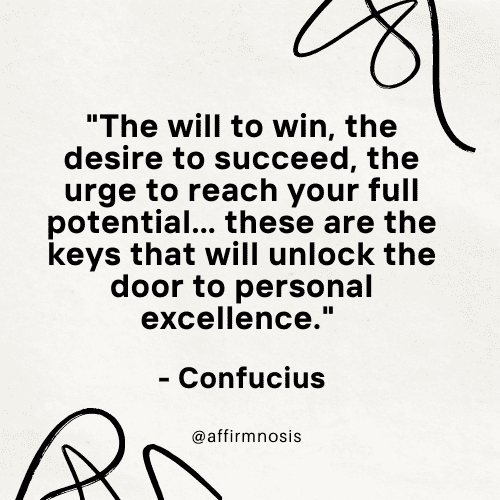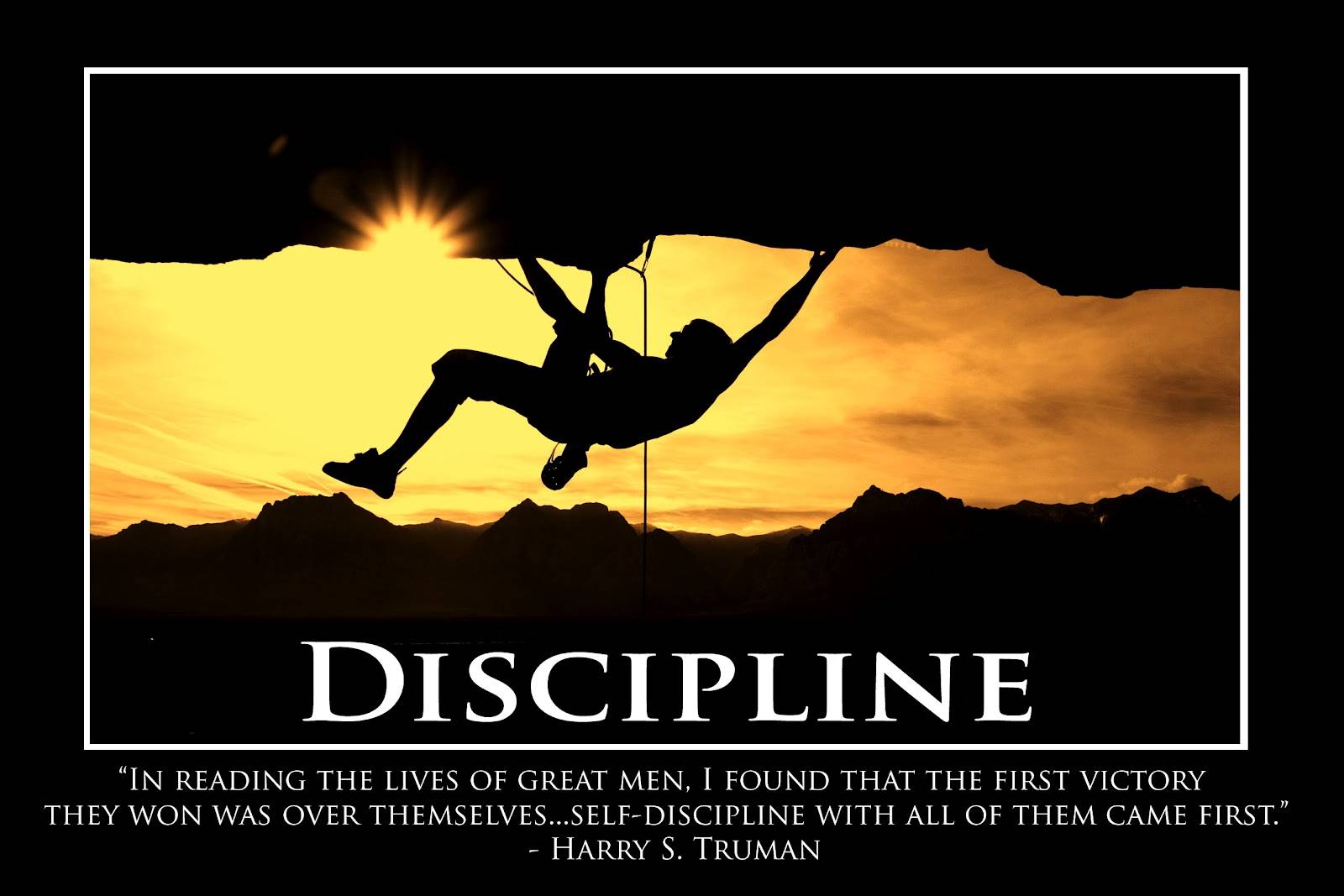Have you ever stopped to think about your potential? What kind of person could you become if you fully realized all your talents, skills, and abilities?
The concept of potential refers to the innate ability that we each possess to reach our highest level of success and achievement. It is the foundation upon which we build our lives and pursue our goals.
Potential can be thought of as a seed that is planted within us at birth. Over time, this seed grows and develops into a unique set of strengths, talents, and gifts.
However, it is up to us to nurture this seed and help it grow into its fullest expression. The process of fulfilling one’s potential requires self-reflection, goal setting, perseverance, and an unwavering commitment to personal growth.
Definition of Potential
Potential can be defined as the inherent capacity or ability for growth or development. It encompasses both natural aptitudes (such as intelligence or athleticism) as well as learned skills (such as critical thinking or communication).
Every individual possesses a unique set of potentials that they can tap into in order to achieve their personal best. One important aspect of potential is its dynamic nature – it is not a fixed quantity but rather something that can be developed over time with effort and dedication.
This means that even if someone feels they may not have been born with certain talents or abilities, they can still work towards developing them through practice and persistence. It’s also worth noting that potential is not just limited to career success or academic achievement – it extends to all areas of life such as relationships, health, creativity, spirituality etc. Fulfilling one’s potential means realizing their full range of capabilities across all aspects of life.
Importance of Fulfilling One’s Potential
The pursuit of fulfilling one’s potential is vital for personal growth and development on both an individual level and a societal level. When individuals fully realize their potential, they are able to contribute meaningfully to their communities and society as a whole. As such, it is important that we strive towards fulfilling our potential not just for our own benefit but for the greater good.
Fulfilling one’s potential also leads to increased self-confidence and self-esteem. When we are able to achieve our goals and live up to our full potential, we feel a sense of purpose and fulfillment that can positively impact all areas of life including work, relationships, and personal well-being.
At its core, fulfilling one’s potential means living a life of purpose and meaning. It means utilizing our unique set of talents and abilities in service of something greater than ourselves – whether that be personal growth or making a positive impact on the world around us.

Understanding Your Potential
Self-awareness and Personal Assessment
Fulfilling your potential begins with understanding yourself. Self-awareness is the foundation of personal development, as it allows you to recognize your strengths and weaknesses, identify opportunities for growth, and make informed decisions about your future. To become more self-aware, take time to reflect on your thoughts, feelings, and actions.
Ask yourself questions such as “What do I value?”, “What are my natural talents?”, and “What motivates me?” In addition to reflection, seeking feedback from others can be a valuable tool for gaining self-awareness.
Ask trusted friends or colleagues for honest feedback on your strengths and areas for improvement. This feedback can help you identify blind spots in your self-perception and provide insights into ways you can grow.
Identifying Strengths and Weaknesses
Once you have a better understanding of yourself through reflection and feedback, the next step is to identify your strengths and weaknesses. Your strengths are the areas where you excel naturally or have developed expertise over time.
These are the skills or traits that set you apart from others in a positive way. Identifying these strengths allows you to leverage them in pursuing goals that align with your values.
On the other hand, weaknesses are areas where you struggle or lack knowledge or experience. It’s important to acknowledge these areas in order to develop strategies for improvement or seek out support from others who possess those skills.
Setting Realistic Goals
With a clear sense of your self-awareness and identified strengths and weaknesses, it’s time to set realistic goals that align with your potential. Setting achievable goals will help build confidence as progress is made towards each goal.
When setting goals it’s important to consider both short-term objectives as well as long-term aspirations. Short-term goals offer quick wins that build momentum towards more significant accomplishments while long-term goals provide a clear direction for your personal and professional growth.
Goals should also be specific, measurable, achievable, relevant and time-bound (SMART). This helps to ensure that each goal is focused, achievable and provides a clear sense of progress over time.
Overcoming Obstacles
Recognizing and addressing limiting beliefs
One of the biggest obstacles that people face when trying to fulfill their potential is their own limiting beliefs. These can be thoughts such as “I’m not good enough” or “I’ll never be able to do that”.
These thoughts can become self-fulfilling prophecies if they are not addressed and overcome. To recognize your limiting beliefs, it’s important to pay attention to your inner dialogue and notice when you are thinking negatively about yourself or your abilities.
Once you have identified these limiting beliefs, challenge them with evidence that contradicts them. For example, if you believe that you’re not good enough for a particular job, remind yourself of all the times you have succeeded in similar situations.
Developing a growth mindset
In order to overcome obstacles and fulfill your potential, it’s important to develop a growth mindset. This means embracing challenges as opportunities for growth and seeing failures as learning experiences rather than setbacks. A growth mindset allows you to approach challenges with curiosity and a willingness to learn.
Instead of giving up when faced with difficulty, those who adopt a growth mindset see it as an opportunity for improvement. To develop this type of mindset, focus on learning from mistakes rather than dwelling on them.
Building resilience
Resilience is the ability to bounce back from setbacks or adversity. Building resilience is essential for overcoming obstacles on the path towards fulfilling your potential. One way to build resilience is through practicing self-care and stress management techniques such as meditation or exercise.
Another key aspect of building resilience is having a strong support network. Surround yourself with people who believe in you and are willing to provide encouragement and support when things get tough.
Overcoming obstacles is an important part of fulfilling your potential. Recognizing and addressing limiting beliefs, developing a growth mindset, and building resilience are all key components to overcoming obstacles. It’s important to remember that setbacks are a normal part of the journey towards success, and that with the right mindset and support system, you can overcome any obstacle that comes your way.
Taking Action
The Importance of Creating a Plan of Action
Fulfilling your potential requires taking action and making progress towards your goals. However, it can be overwhelming and easy to feel lost without a clear plan. Creating a plan of action helps clarify the steps needed to reach your desired outcome.
Start by identifying specific actions that need to be taken and break them down into smaller, manageable steps. Determine timelines for when each step will be completed and adjust as necessary.
A well-thought-out plan can also help overcome procrastination and increase motivation. Having a roadmap in place allows you to focus on the present task rather than feeling overwhelmed by everything that needs to be done.
Consistency and Perseverance
Once you have created a plan, it’s important to stay consistent with executing it. This means committing to taking action on a regular basis, even when you don’t feel like it or encounter obstacles along the way.
Consistency builds momentum towards achieving your goals and helps develop discipline that can benefit other areas of life as well. It’s also important to recognize that setbacks are part of the process but should not derail progress entirely.
Perseverance involves being resilient in the face of challenges and continuing forward despite setbacks or failures. Use obstacles as opportunities for growth rather than reasons to give up altogether.
Seeking Support and Accountability
Seeking support from others can make all the difference in fulfilling your potential. Find people who share similar goals or have experience in areas where you want to improve, such as mentors, coaches, or accountability partners.
These individuals can provide guidance, encouragement, feedback, and an outside perspective when needed. Additionally, sharing progress with others creates an added layer of accountability that can help motivate action and ensure consistency in following through with the plan.
It’s important to choose individuals who are supportive and constructive, rather than critical or discouraging. Remember that fulfilling your potential is a journey, not a destination, and having a positive support system can make the journey much more enjoyable and rewarding.
Celebrate Milestones Along the Way
Fulfilling your potential requires consistent effort over a long period of time. During this journey, it is important to acknowledge and celebrate milestones along the way.
Celebrating small successes can provide a sense of accomplishment, motivate you to continue making progress, and boost your overall well-being. When setting goals for yourself, break them down into smaller achievable milestones that allow you to track progress and identify areas for improvement.
For example, if your goal is to start a new business venture, set milestones such as researching target markets or creating a business plan. When you reach these milestones, take time out to celebrate the achievement and reflect on what you’ve learnt so far.
Celebrating milestones does not have to involve extravagant activities or spending large sums of money; it can be as simple as treating yourself to a relaxing day at home or having dinner with friends. The key is to make sure that you intentionally acknowledge your accomplishments and appreciate the effort that went into achieving them.
Continuous Learning and Improvement
To fulfill your potential requires continuous growth and improvement. This means consistently seeking opportunities for learning new skills or improving existing ones.
Continuous learning not only helps expand knowledge but also builds resilience by increasing adaptability in different situations. There are different ways that one can pursue continuous learning and improvement; taking courses, joining workshops or seminars are just some examples.
Additionally, reading books, listening to podcasts or watching videos related to an area of interest can also help develop skills without formal education. It is essential that while pursuing continuous learning we maintain an open mind towards feedback from others because it provides an opportunity for self-improvement.
Maintaining Balance in Life
Maintaining balance in life while fulfilling one’s potential is vital; extreme dedication towards achieving one’s goals without balancing other areas of life can lead us down an unhealthy path leading to stress, burnout and other negative effects. Therefore, it is necessary to maintain balance in life by paying attention to different aspects of one’s life such as physical and mental health, work-life, hobbies or leisure time. One way to maintain this balance is by setting boundaries for yourself and prioritizing your wellbeing.
For example, if you have made plans for the weekend with family or friends try not to compromise on them just because of work-related tasks. It is important to make time for activities that make you happy.
Another way of keeping balance is by practicing mindfulness techniques such as meditation or yoga. These techniques can help reduce stress which may arise while working towards fulfilling your potential.
Fulfilling your potential requires hard work and dedication but also requires a balance between your personal and professional life. Celebrating milestones, pursuing continuous learning and maintaining a balanced lifestyle are key elements in fulfilling one’s potential. By taking small steps towards reaching goals while also being mindful of our emotional wellbeing we can achieve our full potential while remaining happy and healthy in the process.
Conclusion
Summary of key points
In this article, we have explored the concept of fulfilling your potential. We began by defining what potential is and why it is important to maximize it.
From there, we discussed how to understand your potential through self-awareness and personal assessment, identifying strengths and weaknesses, and setting realistic goals. We then explored the obstacles that can prevent us from reaching our full potential such as limiting beliefs, fixed mindset, and lack of resilience.
We provided strategies for overcoming these obstacles including recognizing and addressing limiting beliefs, developing a growth mindset, and building resilience. We also covered taking action to fulfill your potential by creating a plan of action, consistency and perseverance in executing that plan, seeking support from others in keeping you accountable for your goals.
We talked about navigating success by celebrating milestones along the way while continuously learning from mistakes or failures. We also emphasized the importance of maintaining balance in life as you pursue your goals.
Take action towards fulfilling your potential
Despite all the challenges that come with pursuing one’s full potential: self-doubt and fear of failure; it’s important to recognize that fulfillment comes only when one takes proactive steps towards growth despite those struggles. Nothing worth having comes easy
I want to encourage you to take action today towards fulfilling your potential! Start by taking baby steps towards achieving one goal at a time.
Don’t allow yourself discouraged easily; instead be patient with yourself through every step othe way. Remember always have positive affirmations such as “I am capable” or “I can do this.” Whenever negative thoughts try creeping up on you trying blocking them off or replace them with positive thoughts
Fulfilling your potential is not an easy path but certainly a rewarding one! You are capable!
20 quotes from notable individuals on fulfilling your potential:
- “The only way to do great work is to love what you do. If you haven’t found it yet, keep looking. Don’t settle.” – Steve Jobs
- “Believe in yourself and all that you are. Know that there is something inside you that is greater than any obstacle.” – Christian D. Larson
- “The will to win, the desire to succeed, the urge to reach your full potential… these are the keys that will unlock the door to personal excellence.” – Confucius
- “There is no passion to be found playing small – in settling for a life that is less than the one you are capable of living.” – Nelson Mandela
- “The only limit to the height of your achievements is the reach of your dreams and your willingness to work for them.” – Michelle Obama
- “The future belongs to those who believe in the beauty of their dreams.” – Eleanor Roosevelt
- “Don’t limit yourself. Many people limit themselves to what they think they can do. You can go as far as your mind lets you. What you believe, remember, you can achieve.” – Mary Kay Ash
- “You have within you right now, everything you need to deal with whatever the world can throw at you.” – Brian Tracy
- “The only person you are destined to become is the person you decide to be.” – Ralph Waldo Emerson
- “You are never too old to set another goal or to dream a new dream.” – C.S. Lewis
- “The only thing standing between you and your goal is the story you keep telling yourself as to why you can’t achieve it.” – Jordan Belfort
- “Believe you can and you’re halfway there.” – Theodore Roosevelt
- “The greatest discovery of all time is that a person can change his future by merely changing his attitude.” – Oprah Winfrey
- “Success is not the key to happiness. Happiness is the key to success. If you love what you are doing, you will be successful.” – Albert Schweitzer
- “The only way to achieve the impossible is to believe it is possible.” – Charles Kingsleigh
- “You have power over your mind – not outside events. Realize this, and you will find strength.” – Marcus Aurelius
- “Don’t watch the clock; do what it does. Keep going.” – Sam Levenson
- “The only limit to our realization of tomorrow will be our doubts of today.” – Franklin D. Roosevelt
- “The future depends on what you do today.” – Mahatma Gandhi
- “The best way to predict your future is to create it.” – Peter Drucker
These quotes emphasize self-belief, the power of dreams, and the importance of action in fulfilling one’s potential.




























































